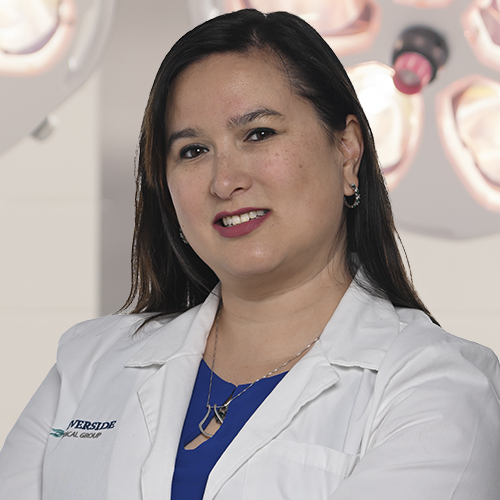Having Surgery? Expert Tips Surrounding Preparation and Recovery
August 5, 2025
Tags: General Surgery
Facing surgery can be a stressful experience, whether it’s a routine procedure or something more complex. But, the right preparation—and knowing what to expect during recovery—can make all the difference.

In this article, Dr. Steven Groene, general surgeon with Riverside Medical Group, shares key tips to help patients feel more confident and in control before going into surgery and better equipped to heal afterward. From questions to ask your care team to practical strategies for a smoother recovery, these insights are designed to support every step of the surgical journey.
Trust and Transparency Eases Anxiety
Dr. Groene reassures patients that feeling anxious before surgery is completely normal—and even expected. He emphasizes that surgery involves a significant and often permanent change to the body, which naturally brings up nerves.
To ease these concerns, Dr. Groene and his colleagues focus on building trust from the first appointment, framing it as a conversation rather than a commitment to immediate action. He also makes a point to use clear, simple language rather than complex medical terms to avoid overwhelming patients.
Above all, Dr. Groene is honest about his experience and comfort level with procedures, helping patients feel more confident and informed as they move forward. “If I've done hundreds, I tell them that. If I've done only ten, I tell them the truth,” he states. “There are certain procedures I don't feel comfortable with. And honestly, at a community hospital like Riverside, there are things we just can't do. There are some very involved surgeries with the liver, pancreas, esophagus. So, I'm very honest and upfront with patients that if it is something I don't feel comfortable with, I'll get them to where they need to be.”
Self-Education as an Effective Preparation Strategy
One strategy Dr. Groene encourages is for patients to take an active role in their healthcare by doing preliminary research using trustworthy, practitioner-vetted sources such as Mayo Clinic, MD Anderson, or respected hospital systems. Coming to a surgical consultation with a basic understanding of their condition helps patients engage in more informed, productive conversations.
He advises patients to ask about all available options—surgical and non-surgical—including the risks, benefits, and types of procedures (e.g., minimally invasive vs. open surgery). Dr. Groene also stresses the importance of asking detailed questions about recovery: expected pain levels, activity restrictions, and potential complications.
“No question is a bad question or a stupid question,” he assures. “If you have a concern, ask. Please. I'd much rather you inquire about anything that’s on your mind, where I can give you a simple answer, than you holding that question in and having it as a point of stress as you're leading up to surgery.”
What Patients Can Do in the Weeks Leading Up to the Surgery
Dr. Groene outlines several key steps patients can take to ensure a smooth surgical experience. First, he emphasizes being well-prepared for the surgical consultation—having questions ready and building a strong rapport with the surgeon. Next, he advises planning for time off work and arranging any necessary paperwork, like FMLA (Family and Medical Leave Act) forms, ahead of time to avoid post-surgery stress.
Patients should also prepare their home and social support system, especially if they live alone, by arranging help for daily tasks, pet care, and ensuring accessibility (e.g., sleeping on the first floor if stairs are an issue). Mentally, patients should take time to prepare in a way that suits them—through prayer, exercise, meditation, or simply enjoying calming activities.
Finally, he encourages patients to physically prepare their bodies for surgery. This includes stopping tobacco use, which can lead to poor surgical results and may be a mandatory requirement for certain procedures. Similarly, patients should avoid recreational drugs, including marijuana, as emerging research links them to complications during recovery.
In some cases, weight loss may be recommended to improve safety and recovery. This approach is supported by evidence showing better outcomes for patients who achieve a healthier weight.
The Recovery Process: Patience Is a Virtue
Staying active after surgery is one of the most important steps patients can take for a smooth recovery. While pain and post-op restrictions are expected, movement—within safe and comfortable limits—helps prevent complications like pneumonia and blood clots. Dr. Groene advocates for a gradual, incremental approach: doing a little more each day, such as walking around the house, going to the kitchen, or getting outside when possible.
Remaining sedentary can delay healing and make movement more painful when patients eventually resume activity. In addition to physical activity, Dr. Groene highlights the need for realistic expectations—understanding that recovery takes time and that regaining full independence is a gradual process.
“A lot of people are very independent and are often the ones who encounter the most challenges in their recovery. They’re thinking, ‘I want to go out, I want to mow, I want to work on my car. I want to work in the garden,’ or whatever it is they want to do. Sometimes, that's the hardest part for them. It's not the pain, it's the waiting and not being able to do what they want to do. It’s really important to keep the mindset that the pain is temporary,” he advises.
Of course, if pain persists, it’s essential to visit with one’s surgeon or other healthcare provider to ensure patients are truly on the road to full recovery.
For more information on Riverside's surgical services click here.

